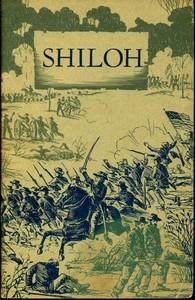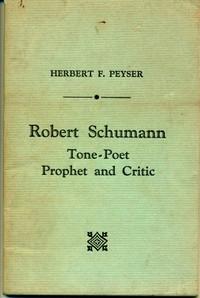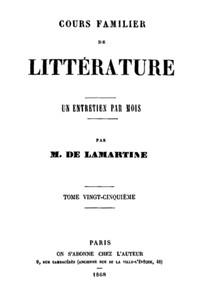Read this ebook for free! No credit card needed, absolutely nothing to pay.
Words: 18347 in 7 pages
This is an ebook sharing website. You can read the uploaded ebooks for free here. No credit cards needed, nothing to pay. If you want to own a digital copy of the ebook, or want to read offline with your favorite ebook-reader, then you can choose to buy and download the ebook.


: Shiloh National Military Park Tennessee by Dillahunty Albert - Shiloh Battle of Tenn. 1862; Shiloh National Military Park (Tenn. and Miss.)
This publication is one of a series of handbooks describing the historical and archeological areas in the National Park System administered by the National Park Service of the United States Department of the Interior. It is printed by the Government Printing Office and may be purchased from the Superintendent of Documents, Washington 25, D. C. Price 25 cents.
NATIONAL PARK SERVICE HISTORICAL HANDBOOK SERIES NO. 10 WASHINGTON 25, D. C. 1955
The psychological effect on the South of the Union campaigns was probably of greater importance than the material gains or losses of the contending armies. The Confederates learned by bitter experience the error of their former opinion of the Union soldier. No longer could they boast that the fighting ability of one Confederate was equal to that of 10 Federals, now that Southern dash and chivalry had been grievously tried against Northern valor and endurance.
The near-defeat at Shiloh removed the illusion of easy victory, created by the fall of Forts Henry and Donelson, from the minds of Northerners. They now realized that the struggle was to be a long and bloody one. A few days after Donelson, one Union soldier wrote: "My opinion is that this war will be closed in less than six months from this time." Shortly after Shiloh the same soldier wrote: "... if my life is spared I will continue in my country's service until this rebellion is put down, should it be ten years."
Shiloh is not distinguished by outstanding generalship on either side, but it is interesting as a battle fought by raw volunteers--young men without previous experience in a major engagement and with little or no military training.
War activity west of the Appalachian Mountains in 1861 was confined chiefly to the States of Kentucky and Missouri. Toward the end of the year when loyalty, or at least the neutrality, of the governments of these border States seemed assured, the Federals began making plans for the invasion of the South by way of the western rivers and railroads. Each side began to maneuver for strategic positions. The Confederate General, Leonidas Polk, believing that the Southern States were about to be invaded through Kentucky, moved up quickly from his position at Union City, Tenn., and seized Columbus, Ky., the northern terminus of the Mobile and Ohio Railroad. Gen. Ulysses S. Grant, recently appointed commander of the Federal troops in and around Cairo, Ill., had made preparations to occupy that important river port and railway center on the following day. Thwarted at Columbus, Grant retaliated by taking Paducah, Ky., located at the junction of the Tennessee and Ohio Rivers.
It now became apparent to the Confederate high command in Richmond that a strong line would have to be established along the northwestern border of the Confederacy before the Union armies had time to occupy more of the strategic points. They believed that the task could be performed more effectively if all troops in that theater of operation were placed under one commander. Accordingly, Confederate President Jefferson Davis sent Gen. Albert Sidney Johnston to the West with the imposing title of "General Commanding the Western Department of the Army of the Confederate States of America."
Arriving in Nashville on September 14, 1861, General Johnston studied his difficult assignment. The line he was supposed to occupy extended from the mountains of eastern Tennessee westward across the Mississippi to the Kansas boundary. Only two points on the proposed line were then in Confederate hands: Columbus, which he considered the natural key to the Confederate defense of the Mississippi, and Cumberland Gap, Ky., which he had previously ordered Gen. Felix K. Zollicoffer to occupy.
One of Johnston's first official acts upon arriving at Nashville was to order Gen. Simon B. Buckner to secure Bowling Green, Ky., one of the most important railroad centers south of the Ohio. He also ordered garrisons to the incomplete works at Fort Henry, on the Tennessee, and Fort Donelson, on the Cumberland, hoping to prevent a Union advance up either of these natural highways. A Federal offensive up the Tennessee or the Cumberland would endanger the important railroad and industrial center of Nashville, Tenn.
Since the outbreak of the war, Nashville had been converted into a huge arsenal and depot of supplies. Large quantities of food, clothing, and munitions had been collected and stored in its warehouses. Its factories were turning out percussion caps, sabers, muskets, saddles, harness, knapsacks, cannon, and rifled pieces. Its looms were turning out thousands of yards of gray cloth which were being made into uniforms for the soldiers. The loss of this city would be an irreparable blow to the Confederacy.
While General Johnston was establishing his positions, the Federals were rapidly organizing their forces preparatory to an attack upon the Confederate line. Gen. Henry W. Halleck, from headquarters in St. Louis, was strengthening his positions at Cairo, Ill., and Paducah, Ky. At the same time, he was making ready a large number of river steamers so that his troops could be moved by water to almost any point along his front. From headquarters in Louisville, Gen. Don Carlos Buell, commander of the Department of the Ohio, reinforced his line so that Johnston had to keep his main force at Bowling Green, Ky., to guard the important railroads which penetrated Middle and West Tennessee.
Various plans for an attack upon the Confederate line were considered by the Federals. General Halleck, commander of the Department of the Missouri, believed that it would take an army of not less than 60,000 men, under one commander, to break the well-established line. He, therefore, asked that General Buell's army be transferred to him, or at least placed under his command.
Free books android app tbrJar TBR JAR Read Free books online gutenberg
More posts by @FreeBooks

: Robert Schumann Tone-Poet Prophet and Critic by Peyser Herbert F Herbert Francis - Schumann Robert 1810-1856








